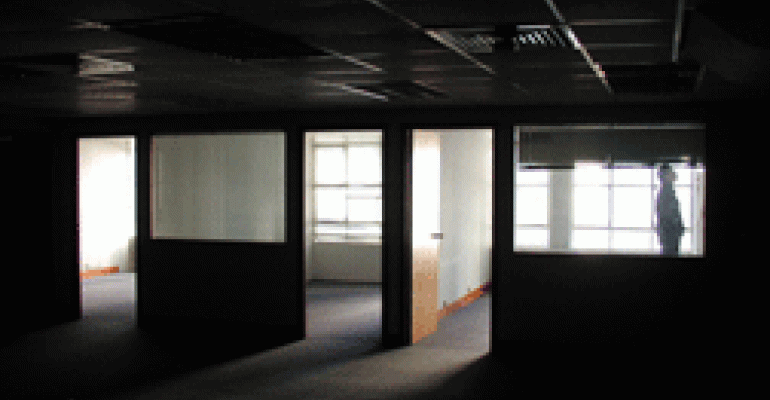
If the lights at the branch office are on and people are keeping busy, can it be considered “closed?” Registered representative James F. Dowley had a lot on the line over this distinction.
In 1996, Dowley joined Piper Jaffray & Co. Ten years later, the Swiss banking giant UBS Financial Services purchased Piper's Private Client Services branch network. Although there were grumblings about UBS's takeover, those were still the days when “retention bonuses” and “retention packages” were freely tossed around. UBS and Dowley agreed to a package that included a six-figure employee forgivable loan (EFL).
Once the EFL was ironed out, Dowley continued in production at the Aspen, Colo., office where he had worked for Piper since 2004. In April 2007, UBS closed the Aspen office. Well, sort of — and thus begins the stuff of lawsuits. (In the Matter of the Arbitration Between UBS Financial Services Inc., Claimant, vs. James F. Dowley, Respondent; FINRA Arbitration Claimant Case Number: 10-00080, Nov. 15, 2010).
UBS sought the return of about $170,000, representing that part of Dowley's EFL that was outstanding on June 19, 2009, the date when he left UBS and subsequently joined Wells Fargo Advisors.
Permanently Closed?
Dowley generally denied the allegations and claimed that because the Aspen office was permanently closed in April 2007, no part of the EFL should be refundable to UBS. Dowley cited the following written provision of the EFL, which excused repayment if:
the office in which the Employee is working [was] permanently closed by [UBS], and the next closest [UBS] office is more than 25 miles from the office closed, and the Employee chooses not to relocate to such next closest or to any other [UBS] office.
Right off the bat, the FINRA arbitration panel recognized that its pivotal determination of this matter was whether the Aspen office was “permanently closed” in April 2007. Unfortunately, the panel was forced to wrestle with what it described as the “equivocal” nature of the evidence.
On the one hand, the panel found evidence that the Aspen office remained open. Among the factors suggesting that status were:
- Dowley's CRD listed a UBS office in Aspen;
- UBS conducted compliance reviews of the Aspen location;
- UBS's witnesses, including the branch manager, did not consider the office “closed;”
- Dowley continued to use Aspen as his primary work place until mid-2009.
On the other hand, the panel gave significant weight to the fact that Dowley's sales activities in Aspen were significantly curtailed in April 2007 when his branch manager and complex manager unequivocally advised him that the Aspen office was closed immediately and that he could no longer solicit new business from the Aspen facility or identify UBS as having an Aspen office.
Tipping the Scale
The panel noted that following the UBS/Piper merger, and up until April 2007, Dowley was still permitted to use the Aspen office in the same manner in which he had used it prior to the merger, including, as one witness testified, allowing Dowley to identify the Aspen location on his UBS business cards. Those circumstances were pointedly changed after April 2007. As such, the panel denied UBS's claim because it concluded that the Aspen office closed in April 2007, thus triggering the exception to Dowley's obligation to repay the balance due on the EFL when he resigned.
This FINRA panel deserves a round of applause for effectively tackling a thorny fact pattern and providing us with the intelligent rationale upon which this decision rests. Although the outcome of this case may well be limited to disputes involving EFLs or other compensation arrangements subject to a similar written provision concerning the permanent closure of an office, the underlying issue of what constitutes an “open” or “closed” office is still relevant for many disputes. The determining factor here was not simply whether the lights remained on at the Aspen branch — the more critical concern was the reality of the situation: Is there meaningful business still being transacted from the space? Are you permitted to do what there what you formerly did, can you disclose the address to clients?
WRITER'S BIO:
Bill Singer is the publisher of RRBDLAW.com and BrokeAndBroker.com.






